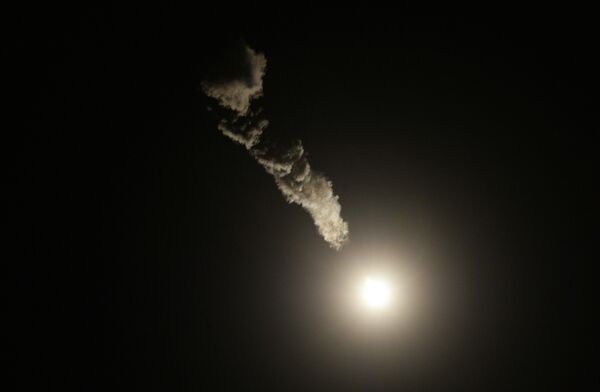Updated 02:48 a.m. Moscow Time
MOSCOW, September 26 (RIA Novosti) - One of the two solar panels aboard Russia's manned Soyuz TMA-14M spacecraft has so far been unable to unfold, a source in the mission control center of the Russian Federal Space Agency told RIA Novosti early Friday.
"According to our data, one of the solar panels is still unable to unfold for reasons unknown. But preliminary data suggest that it will not impede [the spacecraft] from docking to the ISS. They have carried out a maneuver just now which involved all of the spacecraft's engines, all systems are running smoothly, the crew is OK," the source in the agency said.
The Soyuz-FG orbital carrier rocket blasted off earlier in the day from a launching pad at the Gagarin Start launch site at the Baikonur Cosmodrome in Kazakhstan.
It is carrying an international crew that consists of Yelena Serova, Russia's first female cosmonaut in 17 years, as well as her fellow cosmonaut Alexander Samokutyayev and NASA astronaut Barry Wilmore.
Yelena Serova is the fourth female cosmonaut from Russia to ever fly in space, the first being USSR's Valentina Tereshkova who made history in 1963 as the first woman ever to go into space on a sole flight. Serova's flight has effectively ended spaceflight's 17-year male "hegemony."
Soyuz TMA-14M's mission to the International Space Station will be the 123rd since 1967. It was reported earlier that the Soyuz spacecraft had successfully separated from the carrier rocket's third stage.
It is due to reach the ISS about six hours after the launch. The docking will automatically begin at 6:15 a.m. local time (02:15 GMT).


